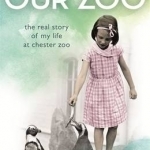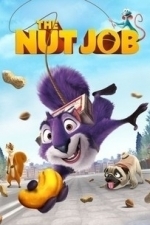
Figment AR
Photo & Video
App Watch
Figment turns your world into an augmented funhouse. Create imaginative scenes out of the world...
photo and video
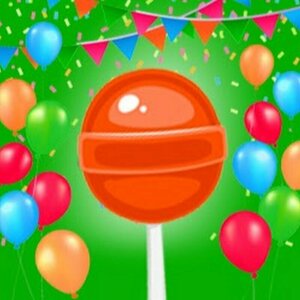
Yaroslava & Playground
YouTube Channel
Hello! My name is Yaroslava. I like toys and animals soooo much! I'll share with you my videos...
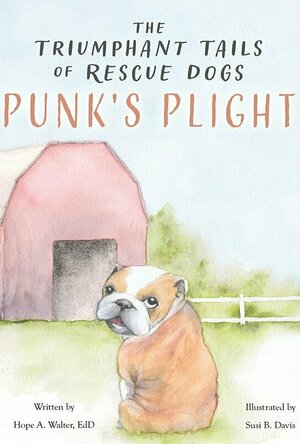
The Triumphant Tails of Rescue Dogs: Punk's Plight
Book
Punk is an eight-year-old petite English Bulldog who has had a hard life. Things are great right...
Children Kids Dogs Animals Picture Books Neglect
Many people in Britain may have recently watched the drama series Our Zoo on BBC1 about the Mottershead family who moved to Oakfield, Upton in 1930 with the aim of building a zoo without bars. Based on a true story the drama over exaggerated the difficulties the family faced in developing what became to be the famous Chester Zoo. Until 2010 when TV producer Adam Kemp approached her, June Mottershead had never thought about making her history available to the public. As the truth had to be bent slightly for the television production with the removal of certain characters and added romance, and, of course, the laws preventing chimpanzees from being filmed, June Mottershead has penned the true story, also called Our Zoo, which is just as fascinating as what was shown on screen.
June was only four when she moved to Upton with her parents, grandparents, and her fourteen-year-old sister Muriel as well as a selection of animals. The BBC1 drama only showed up until the point that her father, George, had finally been given permission to build his zoo despite the petition against it. In the book, however, this occurs within the first few chapters and then continues on until June’s marriage to her husband Fred Williams in 1949. In fact the time period of the narrative jumps around depending on the animals or events that June is describing.
A large chunk of the book is focused on the effect the Second World War had on the zoo. As can be expected the rationings of vital products took its toll on the animals’ diets and, although the zoo never took a direct hit, the Liverpool blitz caused havoc by destroying the glass tanks in the aquarium. On the other hand, the amount of animals rapidly grew, as it was not just humans that became refugees during the war.
It was a delight to read about June’s relationships with some of the animals, particularly Mary the chimpanzee who was also June’s best friend as a child and behaved in a humanlike manner. Alas, as well as the happy moments there were the inevitable upsetting accounts of the deaths some of the animals, either from old age, illness or accidents.
While Our Zoo cannot be described as a novel, it neither has the feel of an autobiography. The conversational tone of the writing made it a pleasure to read and easy to visualize (admittedly watching the televised version had already provided a certain image).
This easy to read book is a strong recommendation for those who enjoyed the BBC adaptation and wish to find out what happened next. It does not matter if you have not watched the drama, as it is overall a fascinating story to read.
Many people in Britain may have recently watched the drama series <i>Our Zoo</i> on BBC1 about the Mottershead family who moved to Oakfield, Upton in 1930 with the aim of building a zoo without bars. Based on a true story the drama over exaggerated the difficulties the family faced in developing what became to be the famous Chester Zoo. Until 2010 when TV producer Adam Kemp approached her, June Mottershead had never thought about making her history available to the public. As the truth had to be bent slightly for the television production with the removal of certain characters and added romance, and, of course, the laws preventing chimpanzees from being filmed, June Mottershead has penned the true story, also called <i>Our Zoo</i>, which is just as fascinating as what was shown on screen.
June was only four when she moved to Upton with her parents, grandparents, and her fourteen-year-old sister Muriel as well as a selection of animals. The BBC1 drama only showed up until the point that her father, George, had finally been given permission to build his zoo despite the petition against it. In the book, however, this occurs within the first few chapters and then continues on until June’s marriage to her husband Fred Williams in 1949. In fact the time period of the narrative jumps around depending on the animals or events that June is describing.
A large chunk of the book is focused on the effect the Second World War had on the zoo. As can be expected the rationings of vital products took its toll on the animals’ diets and, although the zoo never took a direct hit, the Liverpool blitz caused havoc by destroying the glass tanks in the aquarium. On the other hand, the amount of animals rapidly grew, as it was not just humans that became refugees during the war.
It was a delight to read about June’s relationships with some of the animals, particularly Mary the chimpanzee who was also June’s best friend as a child and behaved in a humanlike manner. Alas, as well as the happy moments there were the inevitable upsetting accounts of the deaths some of the animals, either from old age, illness or accidents.
While <i>Our Zoo</i> cannot be described as a novel, it neither has the feel of an autobiography. The conversational tone of the writing made it a pleasure to read and easy to visualize (admittedly watching the televised version had already provided a certain image).
This easy to read book is a strong recommendation for those who enjoyed the BBC adaptation and wish to find out what happened next. It does not matter if you have not watched the drama, as it is overall a fascinating story to read.
Gareth von Kallenbach (980 KP) rated The Nut Job (2014) in Movies
Aug 6, 2019
My 5 year old son says “it was funny, and it made me laugh”. He says he would see it again.
Down at its core, this movie really is about politics. Raccoon rules the park with the outward appearance of benevolence and coordinating all the animals to “work for the good of the park” while Surly is out for only himself, and refuses to conform. He is the cause of an accident that causes their food-storage tree to be burned to the ground, taking all their food with it, and is subsequently banished from the park without a trial, even though Andie, a lady squirrel (voiced by Katherine Heigl), begs her friends to not banish him without a trial. She is almost instantly voted down by the angry residents of Liberty Park.
Surly leaves Liberty Park and has to try and make it on his own. He finds his way to a HUGE stash of nuts, and devises a plan to get them to hold him through the winter. Andie finds him, and wants “in” on the stash to help the animals in the oark, and makes a deal with him to split them if they work together to collect the haul.
After the point in the movie where it is revealed that Racoon is not so benevolent after all and that his goal is to “control the food to control the animals”, some of the animals antics might be a bit troubling for younger viewers, but overall I thought it was a decent movie that kids will likely enjoy & parents can tolerate as well.
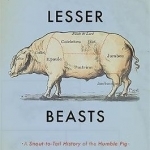
Lesser Beasts: A Snout-to-Tail History of the Humble Pig
Book
Unlike other barnyard animals, which pull plows, give eggs or milk, or grow wool, a pig produces...
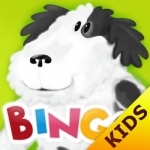
ABC Bingo Song for Kids: learn alphabet and phonics with karaoke nursery rhymes
Games and Music
App
***TOP 4 in the US App Store in Education Category *** ***TOP 50 Overall in April 2013*** Bring...
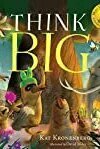
Think Big (The Live Big Series #3)
Book
Set in the wilds of the African savanna, Think Big follows moody Baboon as he discovers another...
Animals

